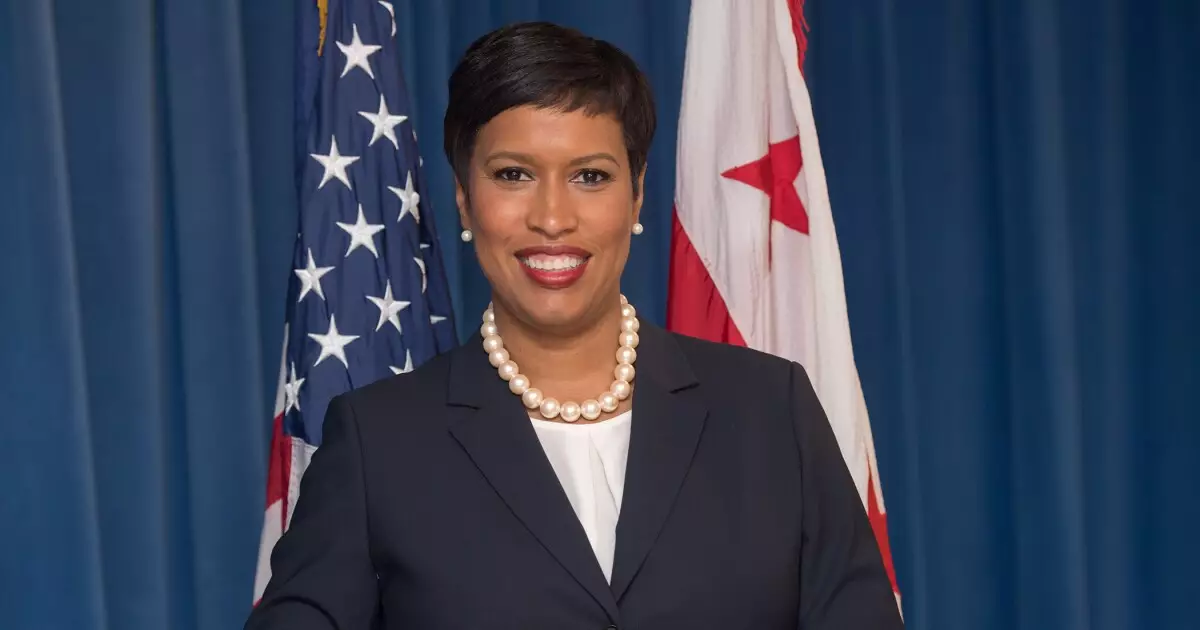The Washington, D.C. City Council recently took significant steps toward enhancing the city’s sports venues, approving a substantial budget for the $515-million renovation of Capital One Arena. This facility serves as the home ground for two major professional sports teams: the NHL’s Washington Capitals and the NBA’s Washington Wizards. Mayor Muriel Bowser articulated the broader vision behind these renovations, emphasizing that modernizing such a vital venue is essential not only for attracting more events and visitors but also for invigorating local businesses. The city’s commitment to prioritizing local enterprises is laudable; an ambitious goal of allocating at least 50% of contracts to certified business enterprises signals a dedication to economic inclusivity.
The decision to move forward with this project reflects a multi-faceted strategy aimed at revitalizing the district’s Chinatown neighborhood. With the city purchasing the arena from Monumental Sports & Entertainment for $87.5 million, it positions itself not just as a landlord but as an active participant in fostering economic growth. The outlined renovation plan, which is set to span three years, promises to create nearly 5,000 jobs, further underscoring the project’s importance in combating unemployment issues exacerbated by the COVID-19 pandemic.
However, this ambitious initiative faced hurdles, particularly in November when discussions centered around labor regulations and local hiring requirements stalled progress. The city’s insistence on employing local firms and respecting labor union agreements showcases the complexity of balancing economic development with social equity. While the Council and the Mayor remain steadfast in their goals, navigating the landscape of labor relations will be critical as they aim to achieve a successful and inclusive renovation project.
Moreover, the negotiations surrounding this renovation are notable, as they signify a paradigm shift in how urban development projects are approached. The Council’s decision indicates a recognition of the value of local capacity building, where local businesses are not merely seen as subcontractors but as essential partners in the development process.
Expansion Beyond Capital One Arena
In tandem with the Capital One Arena renovation, the City Council is working on ensuring a dedicated funding mechanism for maintaining Nationals Park, home to Major League Baseball’s Washington Nationals. Designed with a total investment of $783.5 million and completed in 2008, Nationals Park’s operational costs have consistently been managed effectively, with revenues surpassing debt service payments since 2016. This careful financial planning bodes well for the city’s fiscal health, as it seeks to secure sustainable funding for its sports infrastructure.
Additionally, the plans to gain control over the currently vacant RFK Stadium site speak to a broader vision for sports and urban redevelopment in Washington. With aspirations to attract the NFL’s Washington Commanders back to a renovated RFK, the city’s strategy includes the possibility of transforming the 174-acre site into a vibrant mixed-use commercial and residential area. This vision aligns with the current trend of creating multi-functional spaces that enrich the urban experience, promoting both economic growth and community engagement.
However, the path to redevelopment is not without its legislative challenges. The RFK land transfer requires Congressional approval, a complex process that reflects the intersection of federal and local governance. Fortunately, bipartisan support for the legislation has gained traction, suggesting that the city’s plans are beginning to resonate with lawmakers at various levels. The successful progress through the U.S. Senate Energy and Natural Resources Committee is a promising sign for the legislation’s future, as it heads to the Senate floor for further consideration.
As Washington D.C. embarks on this ambitious revitalization journey, the interplay between sports, economics, and community development must be at the forefront of discussions. Striking the right balance between enhancing its sports infrastructure and promoting equitable growth will be key to ensuring the city not only thrives in terms of entertainment but also as a model for inclusive urban development. The upcoming years will be critical as the implementation of these projects commence, and the surrounding communities await the promises of rejuvenation and opportunity that such investments could bring.

